Remarkable cabasset helmet found in Visegrád during archaeological excavation – PHOTOS

Archaeological excavations in Visegrád have uncovered a remarkable collection of artefacts, shedding light on the intense sieges that shaped the region in the 16th and 17th centuries. Among the findings is a rare fragment of a cabasset helmet, a key piece of military equipment from the period.
Archaeological discoveries at Visegrád
As we have reported HERE, Archaeological discoveries at Visegrád have shed light on medieval architectural innovation. Using 3D scanning, experts reconstructed the Franciscan Church sanctuary vault, linking it to designs preserved at St Stephen’s Church in Vienna. Notably, carvings by Anton Pilgram, a pioneering master builder, reveal his early use of curved rib vaults at Visegrád, a technique later refined in Vienna. This milestone, part of the Visegrád Renaissance Development Programme, celebrates the town’s rich cultural heritage and its influence on Central European architecture.
New findings
According to the National Archaeological Institute, archaeological excavations at the Visegrád Citadel’s Anjou-period dry moat have uncovered a wealth of artefacts, many linked to the sieges that took place during the early modern period. Among the discoveries are fragments of small arms, cannonballs, arrowheads, and the remains of stabbing and cutting weapons, all dating from the mid-16th to early 17th centuries. The intensity of the conflict is evident from the presence of small arms ammunition and pickaxe damage on several objects, reflecting the fierce battles fought in and around the citadel during this tumultuous period in history.
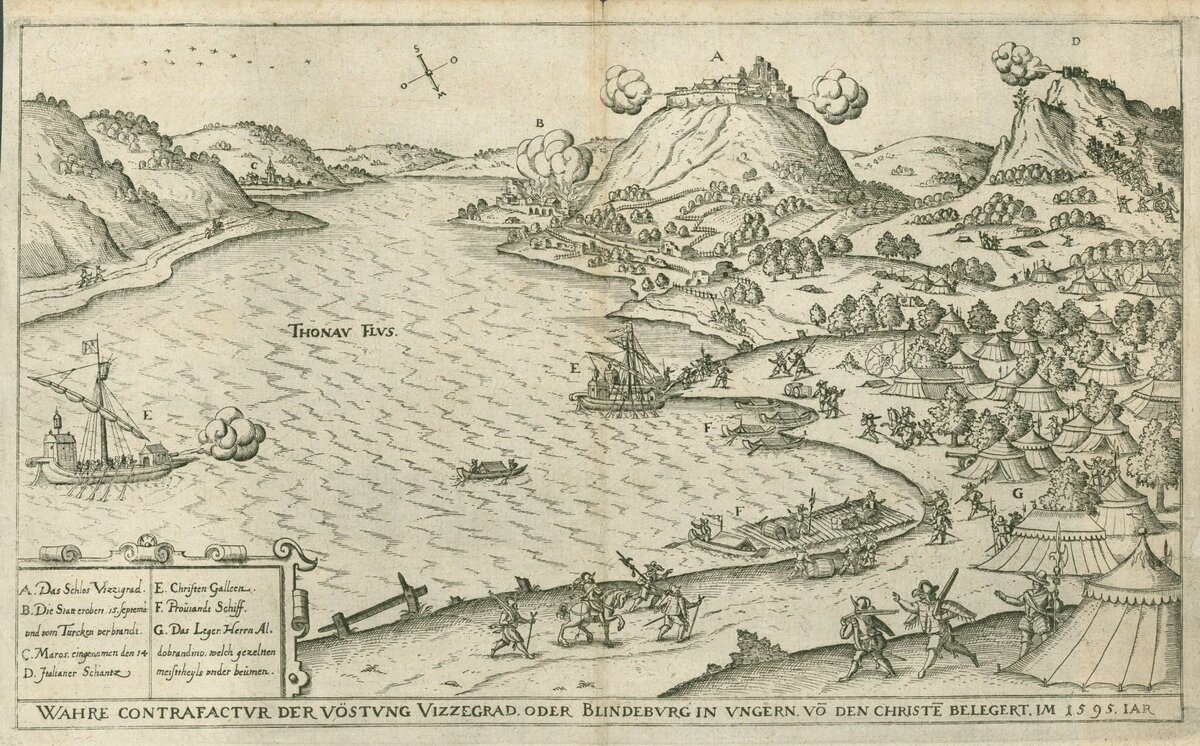

Cabasset helmet
One of the most striking finds is a fragmentary cabasset helmet, a type of conical infantry helmet that was widely used across Europe during the 16th and 17th centuries. The helmet is decorated with copper rosettes along its rim and features an ornate copper feather swivel at the back. This design suggests that the helmet belonged to a soldier, likely a Habsburg mercenary, and was part of their armament during or after the Fifteen Years’ War.
A comparison with similar helmets in the Visegrád Museum’s collection further highlights the uniqueness of this find. The example on display in the Solomon’s Tower exhibition shares the same feather swivel, making it an exact parallel, while another helmet in the palace weapons exhibition is simpler in design, reflecting a more common type of equipment used by infantrymen at the time.


The Visegrád excavation forms part of the larger Visegrád Renaissance project, which aims to preserve and promote the cultural heritage of the region. The project, managed by Várkapitányság Ltd., continues to shed light on Visegrád’s significant role in Central European history. This cabasset helmet, despite its fragmentary state, offers valuable historical information due to its well-dated archaeological context, aided by accompanying numismatic finds.
Read also:
Hungarian PM Orbán: ‘I trust after Donald Trump takes office, we will experience its beneficial effect’
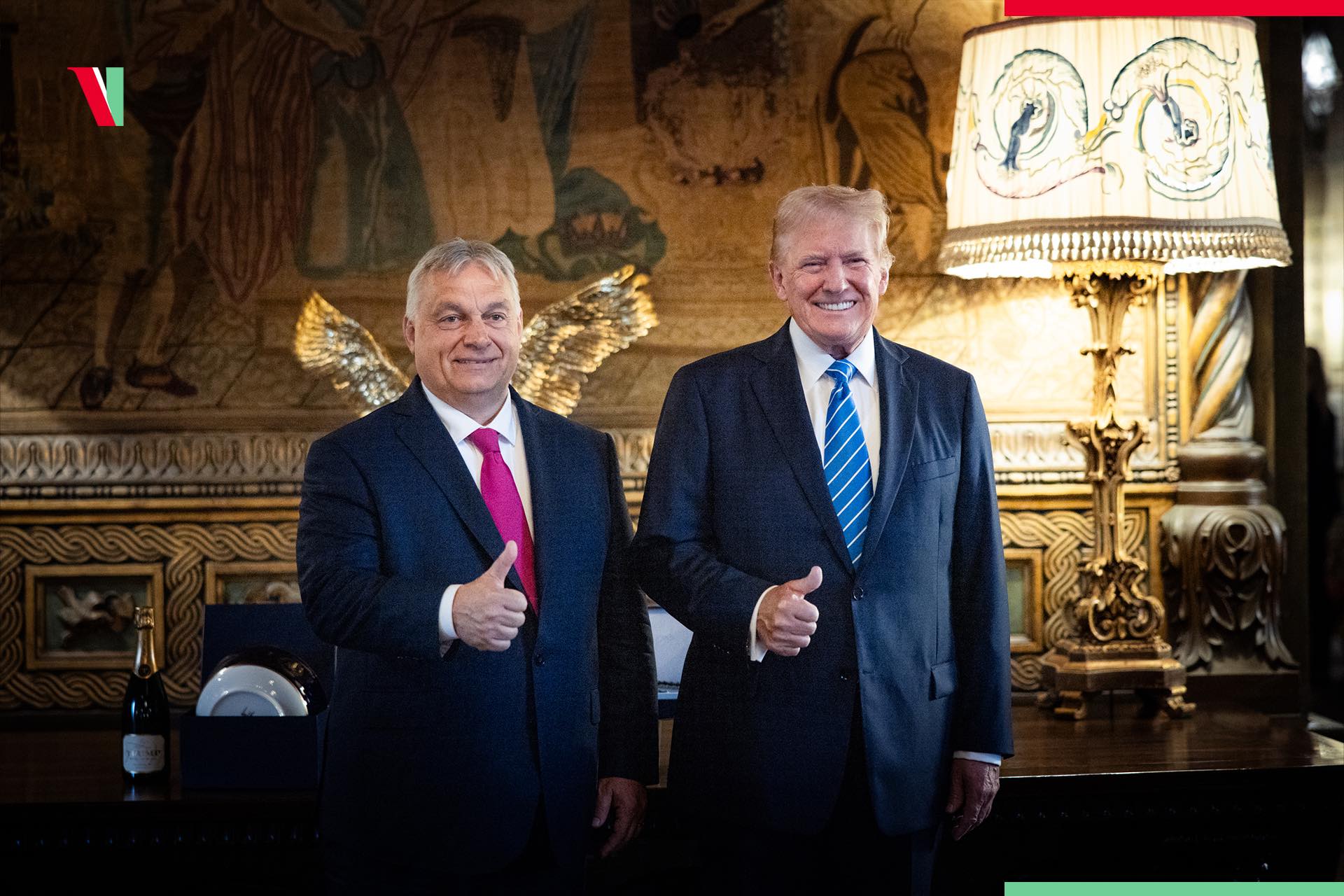
“I trust that on January 20, after Donald Trump takes office, we will experience its beneficial effect,” Prime Minister Viktor Orbán said on Tuesday in response to a question by the press.
Orbán meets Trump
Orbán said in a video posted on Facebook that he had held a meeting with Trump where he congratulated the president-elect. Talks will be held after Trump takes office, Orbán added.
He said that “these days when two people, two men, sit down to talk either in Europe or America, they can certainly not avoid having a word about peace and about war”.
Orbán said that because of very strict US legal regulations, “the US president is currently not in a position to have talks about a ceasefire”. However, he added that he trusted that on January 20, once Trump takes office, “we will experience its beneficial effect”.
Read also:
Orbán cabinet: Hungary-US political relations set to enter ‘golden age’

Hungarian-American political relations are set to enter a “golden age” with the election of Donald Trump as the next US president, and relations between Hungary and the US could be better than ever before, the foreign minister said on Tuesday.
Hungarian-American political relations to have a bright future
The ministry cited Péter Szijjártó telling a joint press conference with his Georgian counterpart in response to a question about his US visit on the previous day that they had held lengthy talks with President-elect Trump, designate National Security Advisor Mike Waltz, and designate Co-Chair of the Department of Government Efficiency Elon Musk lasting about three hours.
“Of course we also congratulated the president-elect because this was the first in-person meeting between the prime minister and the president-elect since the election,” he added.
“The prime minister and the president-elect maintained relations also during the time when Donald Trump was not the president, during the election campaign, and they have talked on the phone several times since,” Szijjártó said. “It is completely natural that they hold consultations regularly.”
Szijjártó said that what further increased the importance of the meeting was that as a result of the transformation of the global economy, digitalisation and AI could play crucial roles in determining a country’s future place in the global economy. Musk and the global empire of companies linked to him play a serious role in spreading new technology, he added.

Szijjártó also said that currently there was an opportunity for better than ever political relations to develop between Hungary and the US.
He added that it was important that until January 20, 2025, nobody in the US or Europe should make irresponsible decisions that could make it impossible to create peace and that would set off irreversible developments.
Considering that the war is still ongoing, the efforts of Hungary’s peace mission must be enhanced, he said. “Last week the prime minister visited the Holy Father. I was in Moscow, in Washington, and held meetings in Malta. Now we travelled to Florida with the prime minister and at least two more events will take place this week that form part of the peace mission, one tomorrow and another one the day after tomorrow,” he said.
Read also:
Two Hungarian politicians named on Politico’s list of the 28 most influential people in Europe
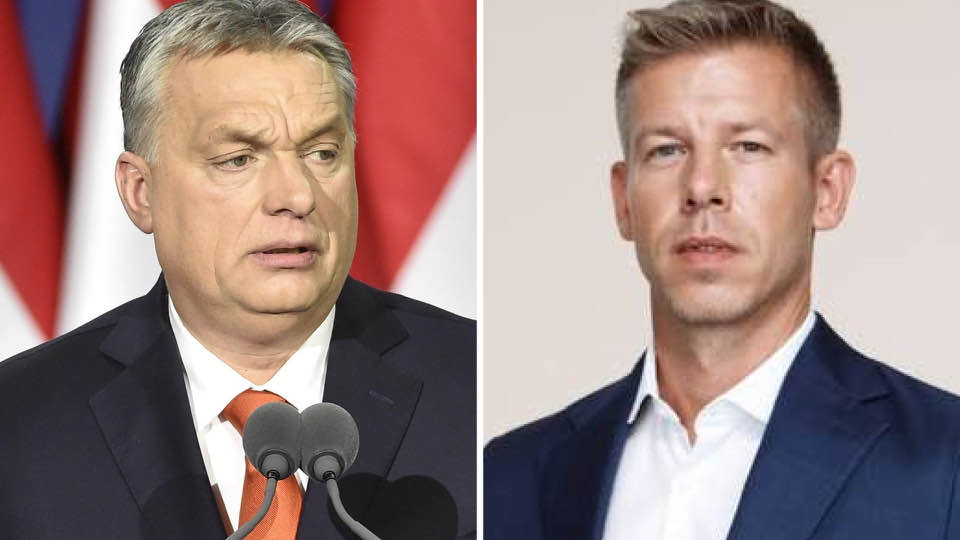
Two Hungarian politicians have made Politico’s 2025 list of Europe’s 28 most influential figures. Viktor Orbán ranks fourth in the “dreamers” category, while Péter Magyar secures sixth place among the “disrupters.” As Magyar rises as a challenger to Orbán’s long reign, the tension between the “challenger” and the “globalist” is shaping Hungary’s political future.
Two Hungarian politicians on Politico’s list
Politico has unveiled its 2025 list of Europe’s 28 most influential figures, highlighting two Hungarian politicians. As Telex reports, Viktor Orbán, Hungary’s Prime Minister, is ranked fourth in the “dreamers” category, surpassing prominent figures such as Kaja Kallas and Andriy Yermak. Meanwhile, Péter Magyar, leader of the Tisza Party, earned sixth place among the “disrupters,” a group that includes Raffaele Fitto and Marine Le Pen. The rankings, which categorise politicians as “doers,” “disrupters,” or “dreamers,” underscore the growing influence of Hungarian politicians on the European stage. The full results of the list will be revealed on Tuesday evening.
The challenger vs the globalist
Péter Magyar was labelled “the challenger” as he is emerging as a key challenger to Viktor Orbán’s long-standing rule. Magyar, from a political family, has steadily built momentum, particularly among progressive urban voters and conservatives in rural areas, a stronghold of Orbán’s support. However, his challenge lies in balancing this appeal without alienating his base in Brussels, as Orbán uses state power, from the media to the judiciary, to undermine him.
Meanwhile, Orbán, labelled “the globalist”, is striving to reshape Europe’s political landscape through international alliances and his ideological influence in Brussels, where he has successfully mobilised conservative forces, especially with the backing of Donald Trump’s re-election. This growing network positions Orbán as a key player in linking Washington and Europe’s advancing conservative movement.

Magyar was quick to comment on Politico’s choice, in a Facebook post he writes:
There’s going to be a problem… Along with Al Capone of the Carpathians, I was included in Politico’s list of the 28 most influential European politicians as a challenger in the disrupter category. This year, the hereditary commissioner of Hatvanpuszta has been included in the globalist category in the “dare to dream big” category. Just don’t end up a nightmare, Prime Minister…
Read also:
Budapest: Europe’s hidden gem ranks among top party cities
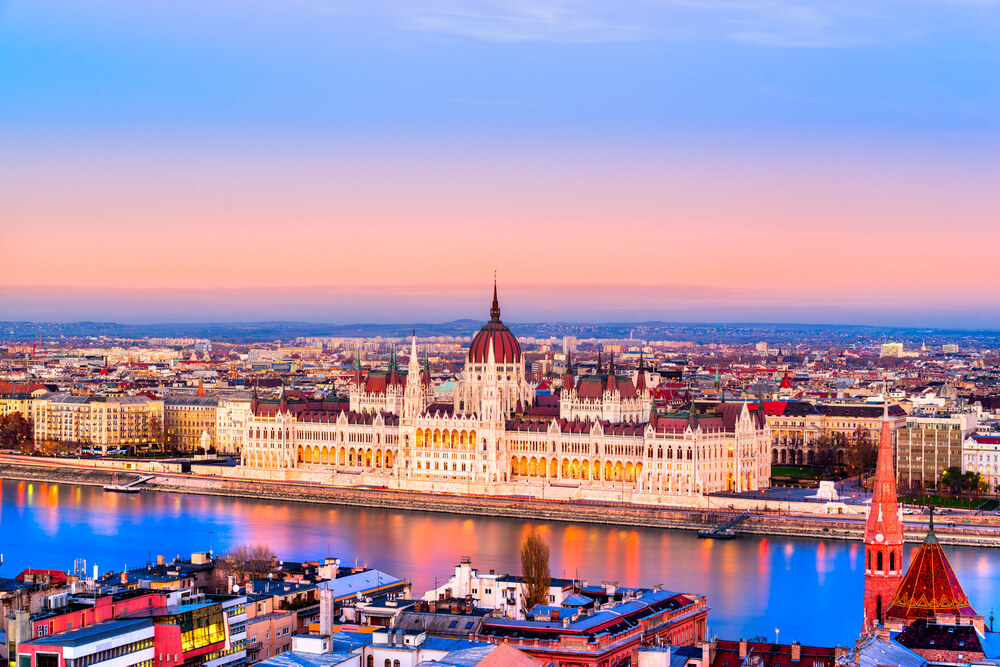
When it comes to unforgettable nightlife, Budapest has carved its place among the elite. Recently ranked as one of the top five 24-hour cities in Europe by Mattress Next Day, Hungary’s capital proves it’s more than just a historic destination—it’s a vibrant playground for party lovers.
Budapest’s nightlife scene shines bright
Landing in the fifth spot on Mattress Next Day’s ranking, the Hungarian capital outranked iconic destinations like Paris and Lisbon, making it a must-visit for night owls. With over 50,000 Google searches for local parties each month, the city’s reputation for nightlife continues to grow. Budapest offers 33 diverse clubs, ranging from ruin bars in the Jewish Quarter to riverside venues with breathtaking views of the Danube.

But it’s not just about partying. The capital also caters to foodies, with nearly two-thirds of its restaurants boasting high TripAdvisor ratings. Start your evening with a gourmet dinner, then hit the town for an unforgettable night.
What sets Budapest apart?
Unlike many bustling European cities, the Hungarian capital combines affordability and accessibility. Public transport operates late into the night, making it easy to hop between venues without breaking the bank. Pair this convenience with the city’s rich cultural backdrop, and Budapest becomes an irresistible mix of fun and history.
Whether you’re exploring the legendary Szimpla Kert or dancing the night away on a party boat, Budapest offers something for everyone. And with its balance of exciting nightlife and cosy retreats, it’s the perfect destination for travellers seeking a lively yet charming experience.
A city worth losing sleep over
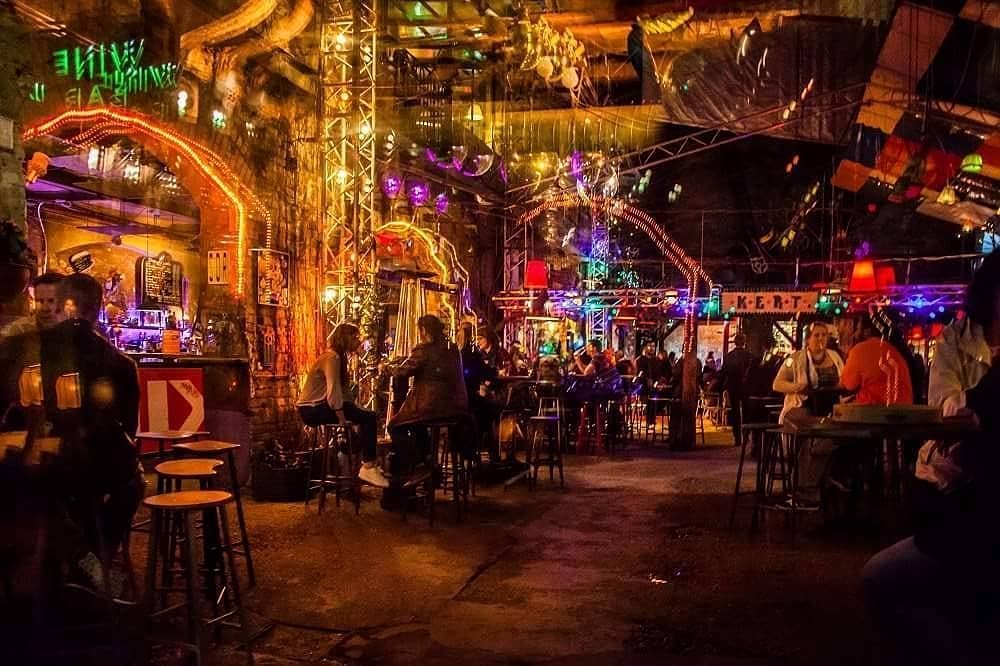
While the hustle and bustle of the Hungarian capital’s nightlife might not make it the easiest city for light sleepers, it’s a small price to pay for the experience. If you’re planning a trip to Europe and want to mix history with a thriving party culture, Budapest should be at the top of your list.
Pack your dancing shoes and prepare for a night—or several—that you won’t forget. Budapest isn’t just the pearl of the Danube; it’s Europe’s hidden gem for nightlife lovers.
Read also:
Hope for a little boy battling the incurable disorder DMD: Dusán’s family seeks support for experimental treatment
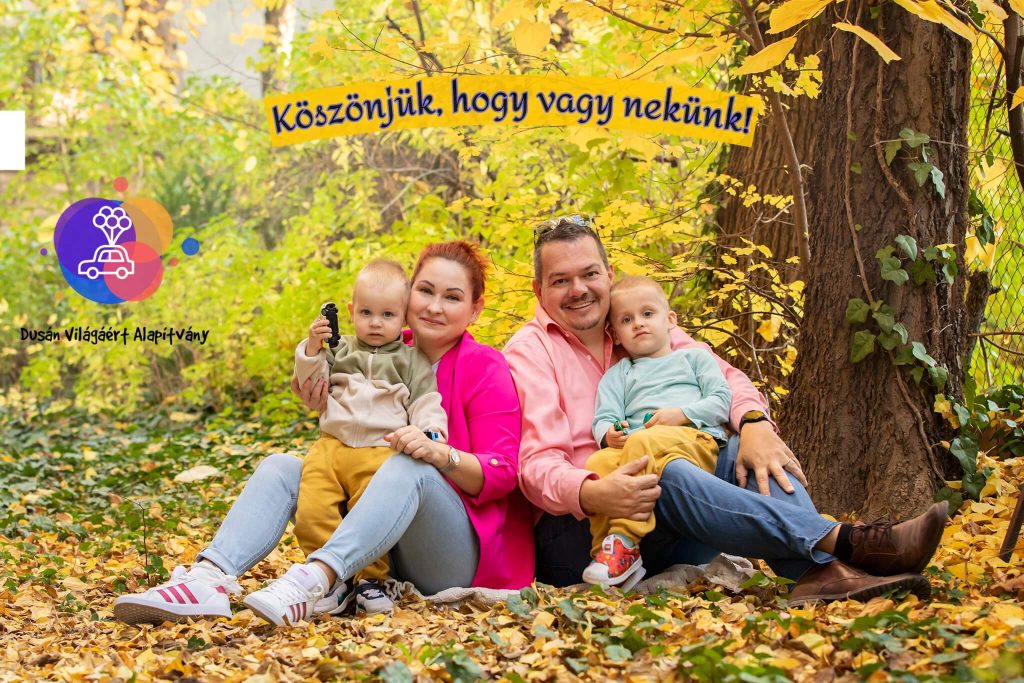
At just 11 months old, Dusán’s family received the devastating news: their young son had been diagnosed with Duchenne muscular dystrophy (DMD), a rare and incurable genetic disorder that leads to progressive muscle weakness and damage. After weeks of uncertainty, the diagnosis came as a shock. DMD, which primarily affects boys, is caused by a mutation in the dystrophin gene, responsible for the stability of muscle cells. The disease gradually weakens the muscles, and while there is currently no cure, research is underway for potential treatments.
Dusán’s birth on 7 September 2020, coincided with World Duchenne Day, and his name almost mirrors the pronunciation of the disease, symbolising a connection to his ongoing battle, ICT Global writes.
A ray of hope: Seeking experimental treatment for DMD

Over the past three years, Dusán’s family has explored every possible option to give him the best chance at life. Despite visiting over 20 clinics and pharmaceutical companies worldwide, many of which offered no answers, hope emerged from an unexpected place: an experimental therapy in Europe. The family now faces the difficult decision to uproot their lives and move to Belgium, where Dusán can participate in a pioneering treatment, which is still in its early stages.
The experimental treatment, though promising, is not risk-free.
“It is risky to undertake an experimental treatment as we are about to begin a therapy whose long-term effects are still not fully known. However, we are doing this not only for Dusán but also for the entire DMD community, to help advance the understanding and treatment of this disease,”
said Zalán, Dusán’s father.
Financial struggle: Help needed for treatment costs
The experimental treatment is expensive, and the family is seeking financial support to cover the costs of moving abroad and sustaining their lives there. With the necessity of leaving their jobs and daily life behind, the family faces significant financial burdens. As part of their support, businesses are encouraged to contribute resources, which can also be reflected in their ESG (Environmental, Social, and Governance) reports.
“We have accepted the terms of the contract, and Dusán has already been participating in preliminary research and trials for over a year. The treatment is a costly alternative to gene therapy, which very few people have access to. We need EUR 120,000 to cover the costs at the start, ensuring we can provide everything Dusán needs to continue his treatment and stay abroad,”
said Zalán.
A life-changing opportunity

Dusán’s participation in the experimental therapy could begin around Christmas, with the potential to significantly improve his quality of life. “If successful, this treatment could not only improve Dusán’s condition but also buy us time to develop second-generation drugs. This would offer hope for many children and families affected by this disease,” Zalán added.
Dusán Világáért Foundation: Supporting the mission
To further support Dusán’s fight, the Dusán Világáért Foundation has been established. Its mission is to provide Dusán with the best chance at healing and living a full life by financing the treatments and tools that will enhance his quality of life.
Support the Cause:
Individuals and businesses can contribute to Dusán’s treatment fund, which is critical to covering the next few years of international medical care. The foundation’s target amount is HUF 50 million (EUR 120,000), which will help cover the costs of Dusán’s overseas treatments.
If you would like to help, donations can be made to:
Dusán Világáért Foundation Account Number:
10300002-13839299-00014902 (IBAN: HU97 1030 0002 1383 9299 00014902)
Dusán Világáért Alapítvány 2234 Maglód, Árpád vezér utca 61 /3
Every contribution, no matter how small, makes a significant difference.
Hungarian FM Szijjártó: ‘Pro-war mainstream launches final attack against new reality’
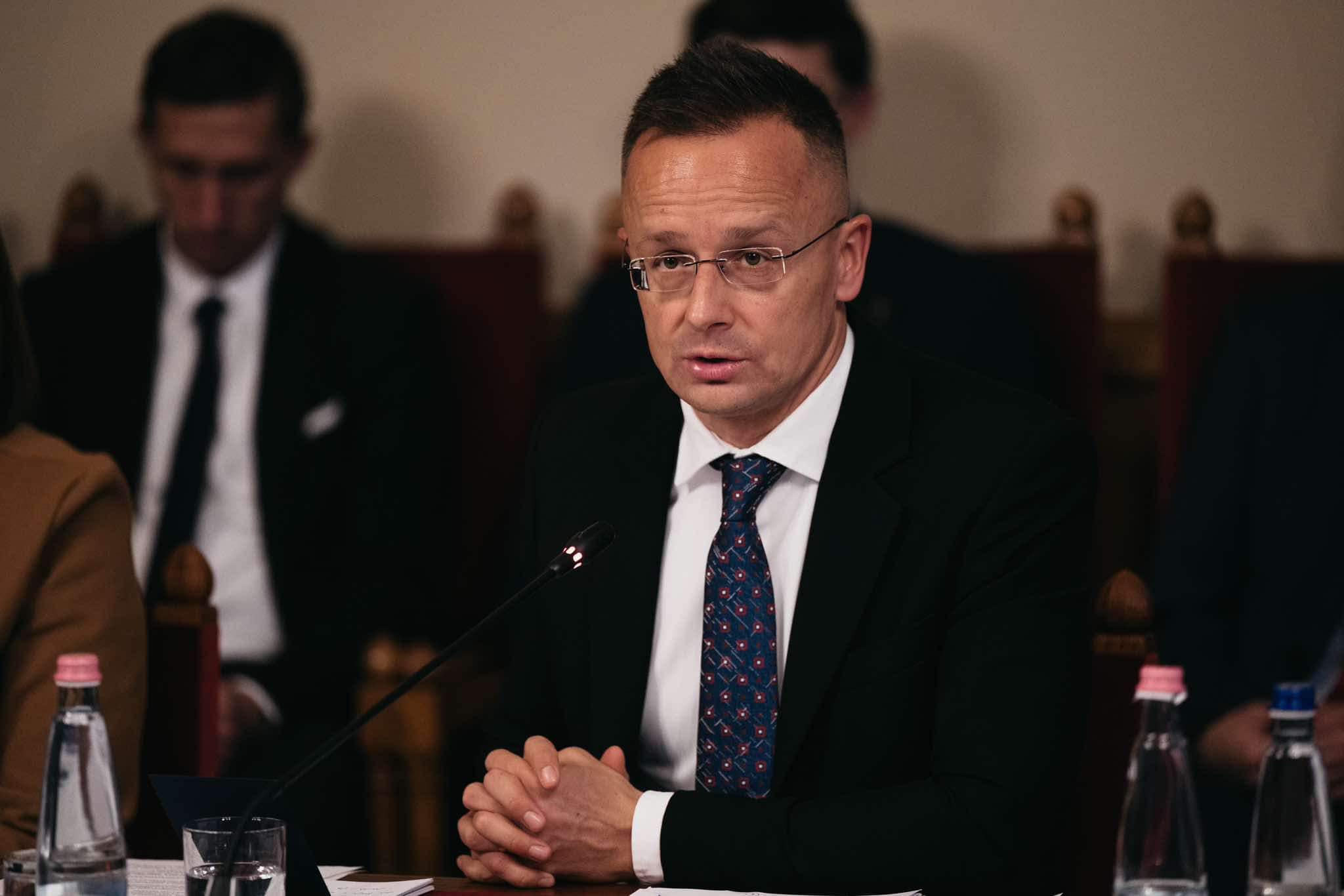
The foreign minister Szijjártó said on Monday that “the pro-war mainstream in Washington and Brussels have launched a final, bitter attempt against the new reality.”
Szijjártó: “we must stop efforts towards escalation in Brussels”
“A pro-peace candidate’s victory in America and patriotic forces forging ahead in Europe have created a new reality based on the will of voters,” Péter Szijjártó said on Facebook.
“They have decided to support pro-peace, patriotic forces, but the pro-war politicians voted out of power will not accept the people’s will either in Washington or in Brussels,” the minister said. He added that it was “not only anti-democratic but extremely dangerous, too.”
“The pro-war forces in their despair seem not to be deterred from the worst: escalating the war in Ukraine into a global conflict,” he said.
Referring to an upcoming meeting of EU foreign ministers in Brussels, the first since the US presidential election, Szijjártó said “it will be a tough fight; we must stop efforts towards escalation in Brussels, too.”
Read also:
Breaking: Hungary has the most expensive electricity in Europe as of 11 November

As reported by Válasz Online, Hungary now has the highest electricity prices in Europe as of 11 November. The shortage has reached such a severe level that on Monday, oil-diesel power plants, which are typically reserved for emergency use, had to be brought online.
Despite the significant number of new solar panels installed in recent years, they are currently not generating sufficient power, Válasz Online reports. Additionally, maintenance work at the Mátra and Gönyű power plants has led to reduced production. Compounding the problem, the hydropower plants in the Balkans are struggling to operate due to drought conditions, disrupting Hungary’s usual energy imports during such times.
Válasz Online emphasised that this crisis is not the result of sanctions or the ongoing war but rather signals the failure of Hungary’s energy strategy. The publication also shared an image based on a report from T-Energy Consulting, showing that in Hungary, one megawatt-hour of electricity costs EUR 306.33. By comparison, the same amount costs between EUR 100 and EUR 170 in Western Europe, even less in Northern Europe, and around EUR 190 to EUR 270 in Eastern Europe.
According to 444.hu, in an interview with Tények, Prime Minister Viktor Orbán addressed questions about the competitiveness pact, stating, “the first and most important thing is to make decisions within six months that will lead to lower energy prices in Europe. Currently, in Hungary, households are paying the lowest prices for gas and electricity across Europe.”
Read also:
- Hungarian opposition leader Magyar asks the EU to assist Hungarians in paying increased energy and food prices
- Thousands of Russians arrive in Hungary to work on the Paks II project
Featured image: depositphotos.com
PM Orbán calls for climate policy ‘guided by common sense’
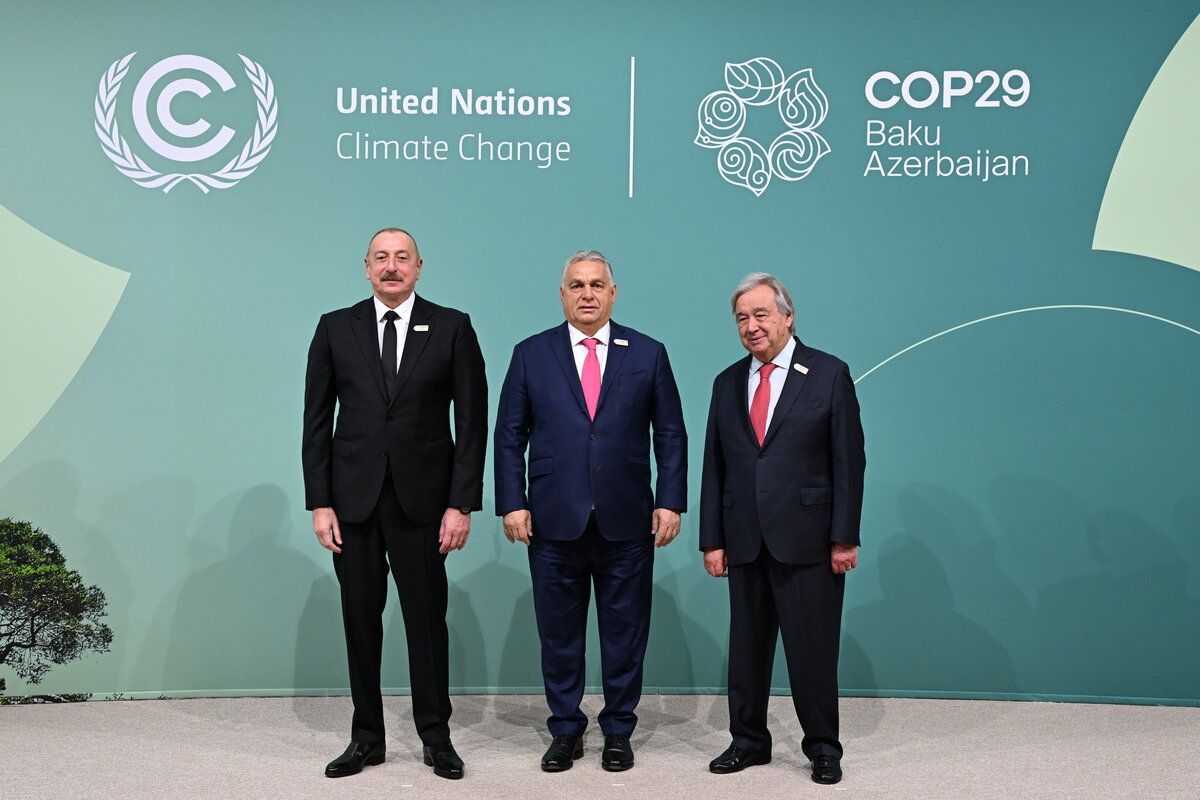
Climate policy should be guided by common sense, rather than ideology, alarmism or panic, Prime Minister Viktor Orbán said in Baku on Tuesday, addressing COP29, the annual UN conference on climate change.
PM Orbán talks about climate policy
Speaking among more than 40 heads of state and government, Orbán thanked Azeri President Ilham Aliyev for hosting the event. Azerbaijan is a key partner of Europe in reaching its climate goals, and an ideal place to hold the conference, he said.

Orbán noted that Hungary held summits of the European Political Community and the European Council last week, where EU leaders adopted a declaration on competitiveness that will shape the EU’s approach to climate issues.
“Our mission is to make Europe more competitive, and we approach climate protection with this vision in our mind,” Orbán said. Hungary is proud to have improved its economic performance while cutting emissions in recent years, he said.
“We cannot sacrifice our industry or our agriculture in this process. We must continue advancing the green transition while also maintaining our use of natural gas, oil and nuclear energy. The price of climate change should not be paid by our farmers, the backbone of our economy and society,” the Hungarian PM said. “We cannot impose unrealistic quotas or burdensome rules on farmers and companies, but should offer practical support for them.”
Green transition and the fight against climate change should be conducted in cooperation with the business community, rather than opposed to it, Orbán said. “We need clear financial guarantees and significant investment, large companies must contribute their fair share to climate protection.”
Regarding Hungary’s achievements, Orbán said the country was vying for an important role in the development of electric vehicles and electricity storage. Hungary is further investing in its already robust nuclear industry, increasing it to meet 70 percent of the country’s electricity demand, he said.
“Geographically, we play a key role in energy transit between East and West,” the Hungarian PM said. Meanwhile, Hungary boasts the lowest utility prices for households in Europe and it has also posted one of the largest increases in the use of green energy, he added.
Hungary is also a leader of economically sustainable climate protection, ranking fourth among EU countries in reducing carbon emissions for unit of energy produced, he said.
Looking ahead, the country aims to reduce emissions by 50 percent by 2030, Orbán said.
“I firmly believe that by working together, we can balance ambition with pragmatism, establishing Europe as a global leader in climate action, in compromise with the prosperity of our agriculture and industry,” Orbán said.
Read also:
Scandal-ridden Fidesz politician Szájer resurfaces with EU critique and new think tank leadership

After years of silence following his 2020 scandal in Brussels, former Fidesz MEP Szájer József has returned to the public sphere with a bold stance on European Union reform and a new role as head of the recently launched Free Europe Institute. The institute, created under the guidance of historian Mária Schmidt, seeks to champion a vision of European integration based on national sovereignty rather than federalism, according to Szájer.
József Szájer is back, and he’s back with a plan
In his official statement, Szájer emphasises the institute’s mission to counter the concept of a “United States of Europe,” advocating instead for a model where member states retain autonomy. This approach aligns with Hungary’s constitution, he notes, which holds that EU cooperation should empower states to exercise sovereignty together, rather than ceding control to central EU bodies. Szájer is adamant about using his knowledge of constitutional and EU law to support this mission through research, analysis, and advisory efforts.

The newly established think tank, with a small but ambitious team, plans to roll out several key projects. Among these are a detailed blueprint for a “sovereign Europe” inspired by the 1960s Fouchet Plan and a sovereignty index to measure EU countries’ independence. Additionally, Szájer aims to draft a “Charter of Nations’ Rights” to balance the EU’s current charter, which primarily safeguards individual rights.
In a lengthy analysis published on Mária Schmidt’s blog, Szájer extends his critique, framing the EU as fundamentally undemocratic and out of touch with European citizens, 24.hu writes. He argues that a series of crises over the past fifteen years has exposed the EU’s inability to respond effectively, attributing this failure to “ideological biases” that disconnect it from citizens’ needs. Szájer positions the newly formed Patriots Group—led by Hungary’s Prime Minister Viktor Orbán—as a viable alternative, capable of breaking the EU’s cycle of ineffective policies with a focus on “democracy and freedom, driven by citizens’ votes.”
Szájer’s past scandal
Szájer’s re-entry into public life comes nearly four years after the scandal that forced his resignation. In November 2020, Belgian authorities apprehended him fleeing a lockdown-violating homosexual orgy event in Brussels, which he later described as a momentary lapse in judgment. Despite ongoing speculation, Szájer maintains he faced no charges beyond breaching COVID-19 restrictions, and he reiterates his intention to shield his private life from public scrutiny.
Reflecting on his career, Szájer notes pride in his contributions to Hungary’s independence and his role as one of the country’s first representatives to the European Parliament. He has spent recent years in quiet reflection and recovery from a serious illness, emphasising that his future work will be intellectual rather than political.
Szájer’s new focus, through the Free Europe Institute, signals his commitment to reshaping EU discourse around sovereignty, with an intent to foster substantial policy alternatives grounded in national independence. As he embarks on this next chapter, Szájer has made clear his stance on personal privacy, stating he will no longer address questions related to his past scandal.
PM Orbán’s reaction to Szájer’s comeback
Hungarian PM Viktor Orbán reacted to the re-emergence of his former colleague. When asked by Telex about Szájer’s return, Orbán’s spokesperson, Bertalan Havasi, commented, “It was about time,” adding that Orbán and Szájer, who have been friends since their university days, regularly meet.
Read also:
Hungary’s pro-family policies yield positive demographic results, highlighted at COSAC conference
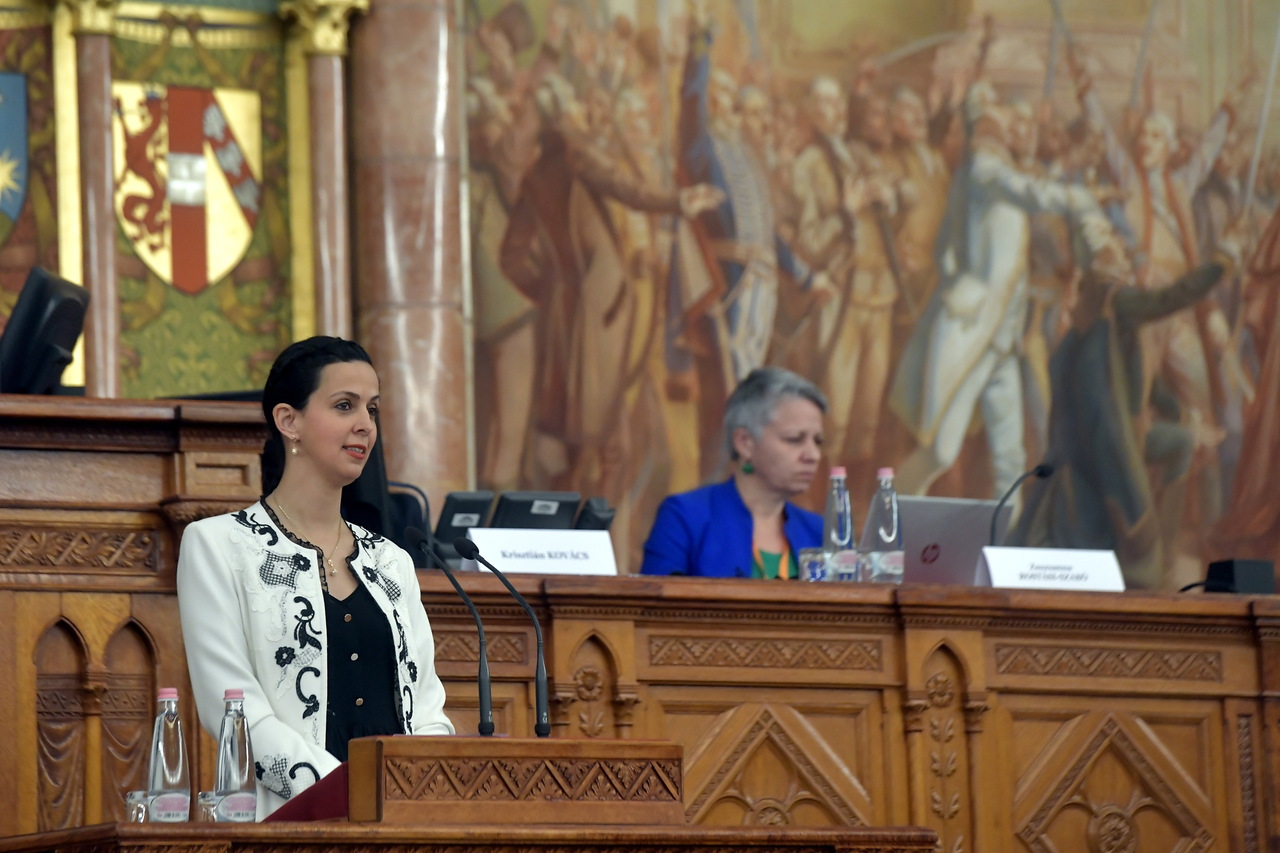
The government’s pro-family policies have achieved real results, with a turnaround visible in most indices, a government official told the Conference of Parliamentary Committees for Union Affairs (COSAC) in Budapest on Tuesday.
In a session on European demographic processes, Zsófia Koncz, the state secretary for families, said the government’s pro-family policy had contributed to an additional 178,000 children born in Hungary since 2010.

Hungary’s birth rate was ranked last among EU member states prior to the current government’s efforts, and it has since advanced to sixth place, she said.
During its EU presidency, Hungary wants to draw attention to the demographic challenges and the importance of family policy. “The EU can be strong and successful only if it is made up of strong families,” she added.
Péter Sztáray, a foreign ministry state secretary, said the EU should spend more on defence, adding that the community should also reinforce its crisis management capabilities.
He said NATO was “the ultimate guarantee” for Europe’s defence. Collective defence is a “primary consideration”, he said, adding that “it is not good if NATO members give up all their reserves to a third country; Ukraine in this case”. Doing so would weaken their own defence and “indirectly, protection for the whole of NATO” unless they have sufficient production capacities.
Concerning the war in Ukraine, he said “everybody agrees that Russia has committed an act of aggression against Ukraine, and so Hungary recognises Ukraine’s sovereignty and territorial integrity. The concepts for a resolution, however, are different.”
“It has become clear that there is no military solution to the conflict,” he said, and reiterated Hungary’s position that “the sides should be convinced that they must sit down and start talks”. Unless they do so “a whole generation will disappear in the war,” he added.
Read also:
EU Affairs minister emphasises importance of cohesion policy and regional governance in enhancing European competitiveness
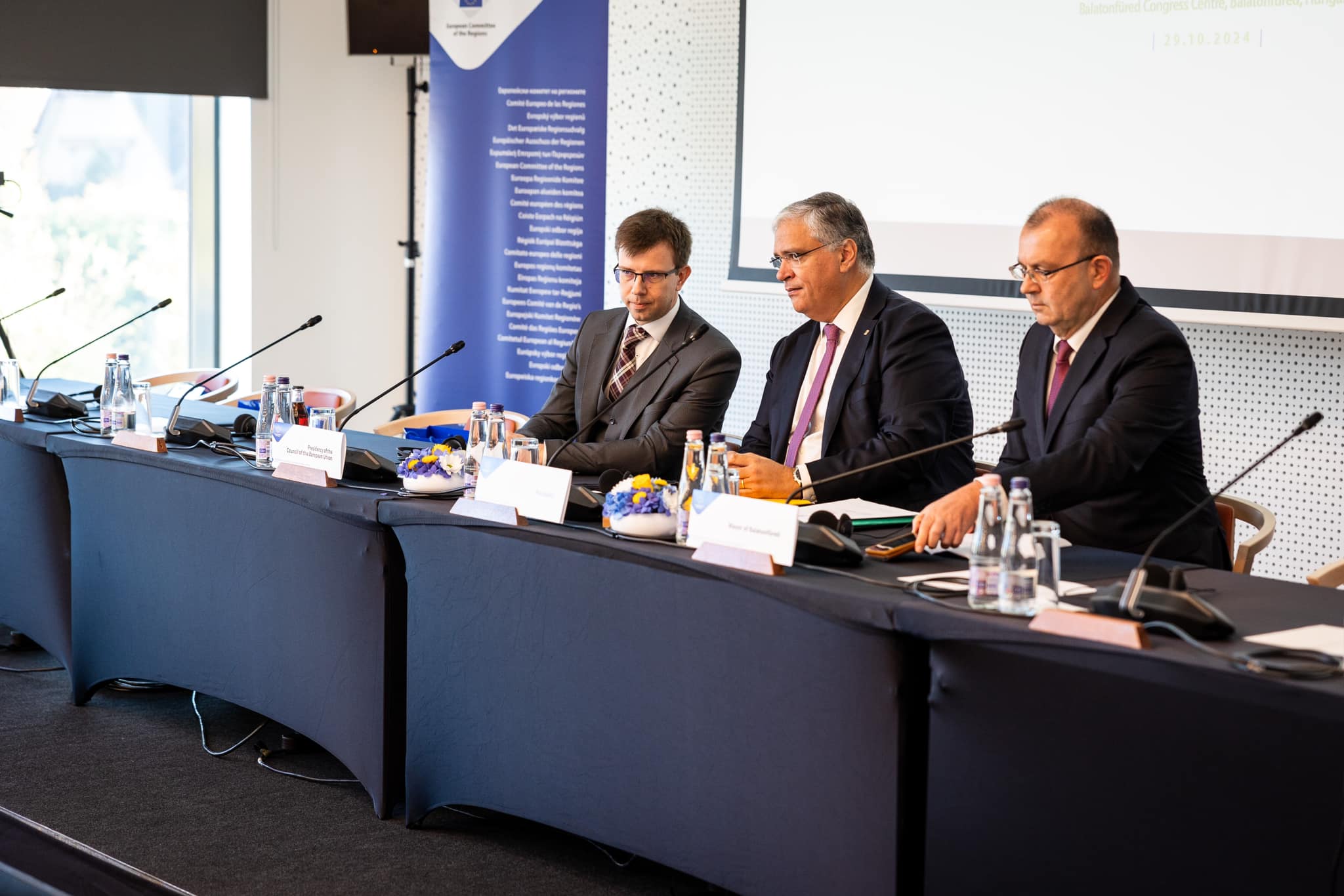
European competitiveness is bound tightly with cohesion policy and the operations of regional governments, János Bóka, the EU affairs minister, told journalists on Tuesday at the opening of a meeting of the European Committee of the Regions held as part of Hungary’s EU presidency.
The forum gives government and local council representatives a chance to exchange ideas and share knowledge on best practices while aiding EU legislative bodies with advice on areas such as health, education, employment, social care and energy policy, Bóka noted.
Among Hungarian EU presidency priorities is a discussion of the challenges that cohesion policy faces in the coming seven-year budget period as well as the role regional and local councils play in shaping it, he said.
Regarding competitiveness, he said the subject was central to local and regional governments in terms of jobs, livelihoods, employment or social care, and feedback from the local councils was important from the point of view of Hungary’s EU presidency.
Read also:
Hungary becomes EU’s most expensive state to run all the while underfunding healthcare

In 2023, Hungary officially became the European Union’s most expensive state to run, with the government spending 8.1% of its GDP on public administration, security, defence, and local municipalities. This expenditure—outlined in a recent budget report submitted to Parliament—places Hungary ahead of all other EU member states, where the average is 5.9%. While Hungary’s lavish spending on state operations stands out, its healthcare system remains severely underfunded, drawing sharp criticism.
Hungary spends too little on healthcare, education
The financial report revealed that, while the state spent HUF 6,119 billion (EUR 15.23 billion) on its operations, healthcare received a mere 4.7% of GDP, placing Hungary at the bottom of the EU rankings, Népszava reports. In comparison, the average EU country allocates 7.7% of GDP to healthcare, significantly more than Hungary. Despite an increase in nominal terms to HUF 3,554 billion (EUR 8.85 billion), high inflation caused the real value of healthcare spending to drop by 7.8%, a reality that healthcare professionals and the public are increasingly feeling.

Education spending faced similar struggles. Though the government allocated HUF 2,901 billion (EUR 7.22 billion), a 12% increase in nominal terms, the nation’s inflation rate of 17.6% meant that in real terms, spending actually decreased by 5.6%. This leaves Hungary trailing behind the EU average, with the country spending 3.9% of its GDP on education compared to the EU average of 4.9%.
At the same time, state propaganda received more
Despite cutbacks across essential public services, there was one notable exception: government propaganda. The Prime Minister’s Cabinet Office, led by Antal Rogán, received HUF 18.1 billion (EUR 45 million) more than originally budgeted for government communication tasks, alongside HUF 35.5 billion (EUR 88.4 million) extra for events.
Meanwhile, the country’s defence and law enforcement sectors also felt the pinch. The 3.2% budget cut, when adjusted for inflation, amounted to a real-term reduction of 21%. This drastic decrease in funding left security forces under strain, with rising debts accumulating towards the end of the year, necessitating emergency financial interventions.

Hungary’s high costs extend beyond public administration. The state also stands out for its generous spending on business subsidies and cultural activities, which includes sports and religious support. These areas have long been a priority for the Orbán government, often at the expense of healthcare and education.
In conclusion, the data highlights the stark imbalance in Hungary’s budget priorities, as the country allocates disproportionately high sums to operating the state while underfunding vital sectors like healthcare and education. This spending pattern raises significant concerns, especially given the country’s ongoing economic challenges and rising inflation.
Read also:
Can European leaders do without religious guidance? Hungarian politician does not think so
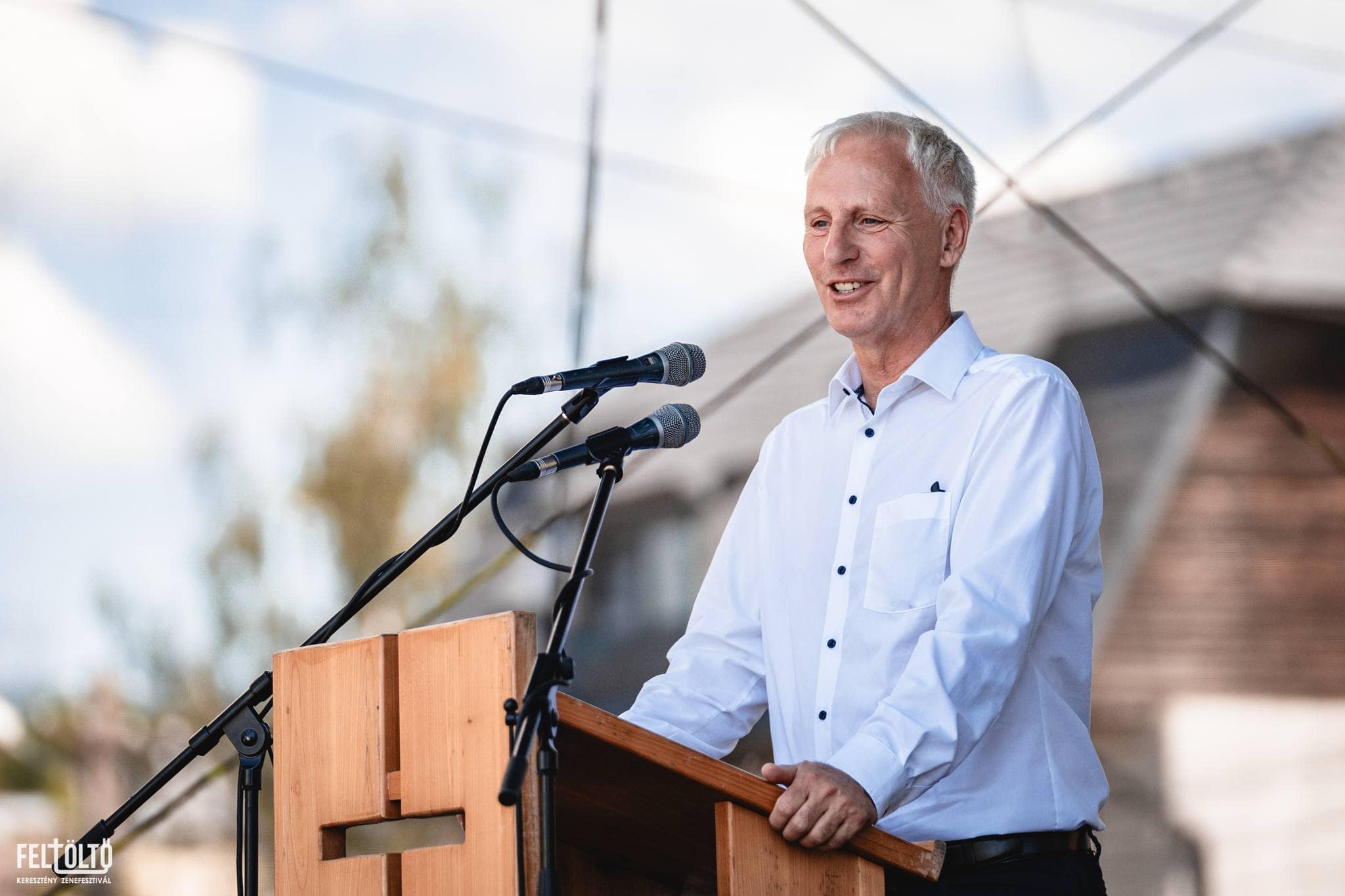
European leaders will “remain on the wrong path”, serving economic interests over communities, without the guidance of religious communities, the state secretary for church and minority relations said in Budapest on Friday.
Miklós Soltész told a conference organised as part of Hungary’s presidency of the Council of the European Union that selfishness had come to the fore in Europe’s leadership, and “ideologies that are twisting the interests of the created world” had emerged.
He said the EU’s migration policy also threatened the continent, arguing that it aimed to address the bloc’s labour shortage problems instead of the EU providing unconditional help to migrants’ countries of origin. Cardinal Péter Erdő, the Archbishop of Esztergom-Budapest, highlighted the changes seen in the legal handling of religion and religious communities in certain European countries.
He said that in certain countries religious education had been turned into education about religion and a “cultural offer” suggesting not just civic equality and equal human dignity, but also the “relativity of religious belief”. Bishop József Steinbach, president of the Synod of the Reformed Church in Hungary, said the biggest challenge in Christian service was reaching those who had completely different views of the world.
Andor Grósz, the head of the Federation of Hungarian Jewish Communities Mazsihisz, said that since Hamas’s terrorist attack against Israel a year ago, anti-Semitism in many countries had reached a high not seen for decades. But while surveys showed that 76 percent of Jews in the EU avoided wearing clothing that could be identified as Jewish, the Jewish community in Budapest felt safe to practise their faith because the Hungarian government guaranteed their safety.
Read also:
4 Hungarian tourism destinations recognised among Europe’s best!
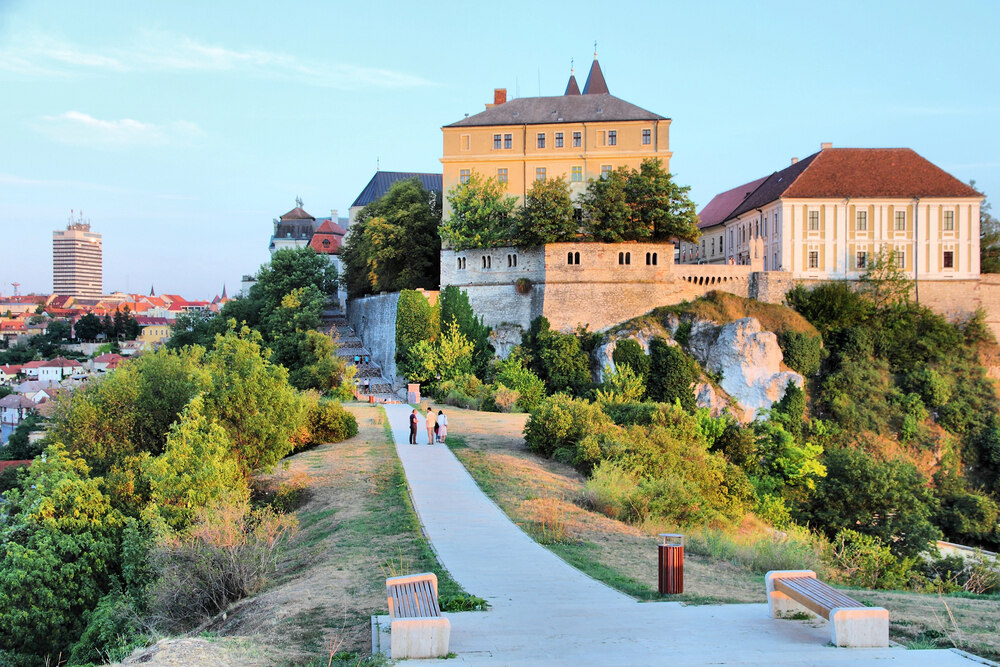
Four of Hungary’s mesmerising tourism destinations, Veszprém, Sárvár, Esztergom, and Tokaj-Hegyalja have received prestigious awards recently. Green Destinations has once again compiled its list of the top 100 sustainable tourism destinations for the year, and Hungary performed well on the list.
This year, 170 tourism destinations, including 65 from Europe, competed to have their sustainability projects showcased on the Green Destinations TOP 100 Stories list, Világgazdaság reports. At the award ceremony held on 15 October, it was revealed that only 32 countries, including Hungary with four projects, made it onto the list, according to a statement from Innotime Hungary.
Annual Green Destinations recognition
The international organisation Green Destinations annually recognises destinations around the world that have implemented high-level sustainable tourism initiatives. These projects serve as inspiring examples for both the industry and travellers.
Every year, tourism destinations are given the opportunity to present how they address key challenges such as environmental protection, social equality, cultural heritage preservation, and economic sustainability.
By publishing these exemplary practices, destination management organisations receive recognition for their innovative solutions to the challenges of sustainable development.
Veszprém made it onto the TOP 100 list for the second time this year, along with award-winning projects from Sárvár, Esztergom, and Tokaj-Hegyalja.
Four tourism destinations, four success stories
Veszprém

Veszprém’s project, linked to its designation as the European Capital of Culture in 2023, earned a spot on the list. The city transformed a neglected 2.3-hectare industrial area—the former site of the Balatoni Furniture Factory—into a vibrant cultural centre known as Gyárkert KultúrPark.
Originally planned as a temporary project, its success led to the extension of the lease for an additional three years. However, this time, the project operates without external funding, relying solely on partial city support and a new business plan.
Tokaj-Hegyalja
In Tokaj-Hegyalja, a model project centred around the village of Bodrogkeresztúr received recognition. It all began when a local stork named Fülöp, who stayed in the village year-round, tragically died after flying into a power line. This event spurred the town to bury its overhead power lines and create a stork-themed visitor centre.
Fülöp, the stork:
Today, the area features an active tourism site offering camping, sports programs, birdwatching, and other conservation-related activities that draw attention to the region’s stork population. Several tourism programs have since been developed, showcasing the unique natural and cultural assets of Bodrogzug and the surrounding area.
Sárvár
Esztergom
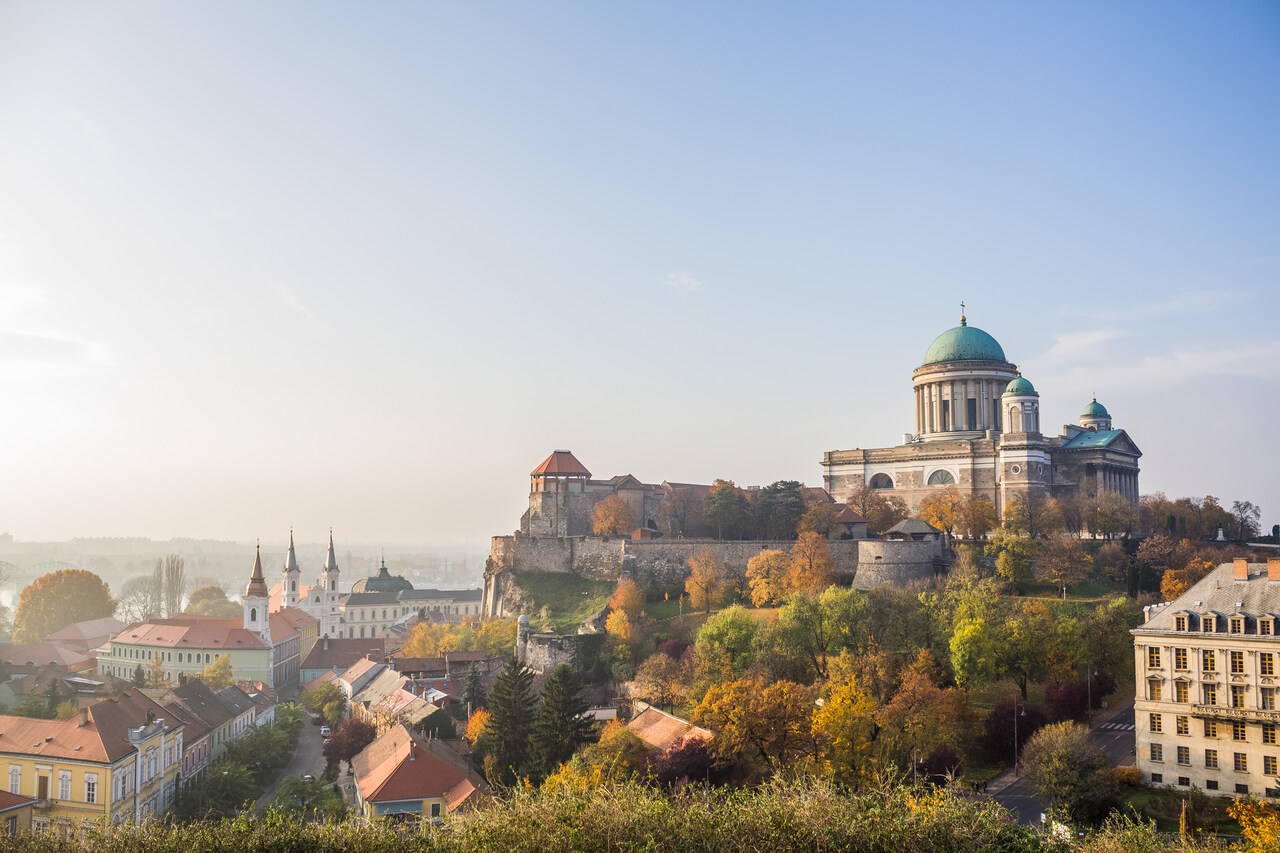
Esztergom’s good practice is tied to its local farmers’ market, operated by the city’s tourism organisation. The market not only offers local producers a platform to sell their goods but also serves both residents and tourists. A city shuttle service, primarily aimed at helping elderly locals access the market, is provided regularly. The market also hosts thematic events for tourists, focusing on local ingredients, products, short supply chains, and showcasing the uniqueness of local businesses.
Read also:
- This rural Hungarian town among the best in the world: a cheap pearl for tourists
- Summer success: Here are the most popular Hungarian destinations among foreign tourists
Featured image: depositphotos.com
Viktor Orbán’s bold claims about Hungary’s safety contradicted by crime stats
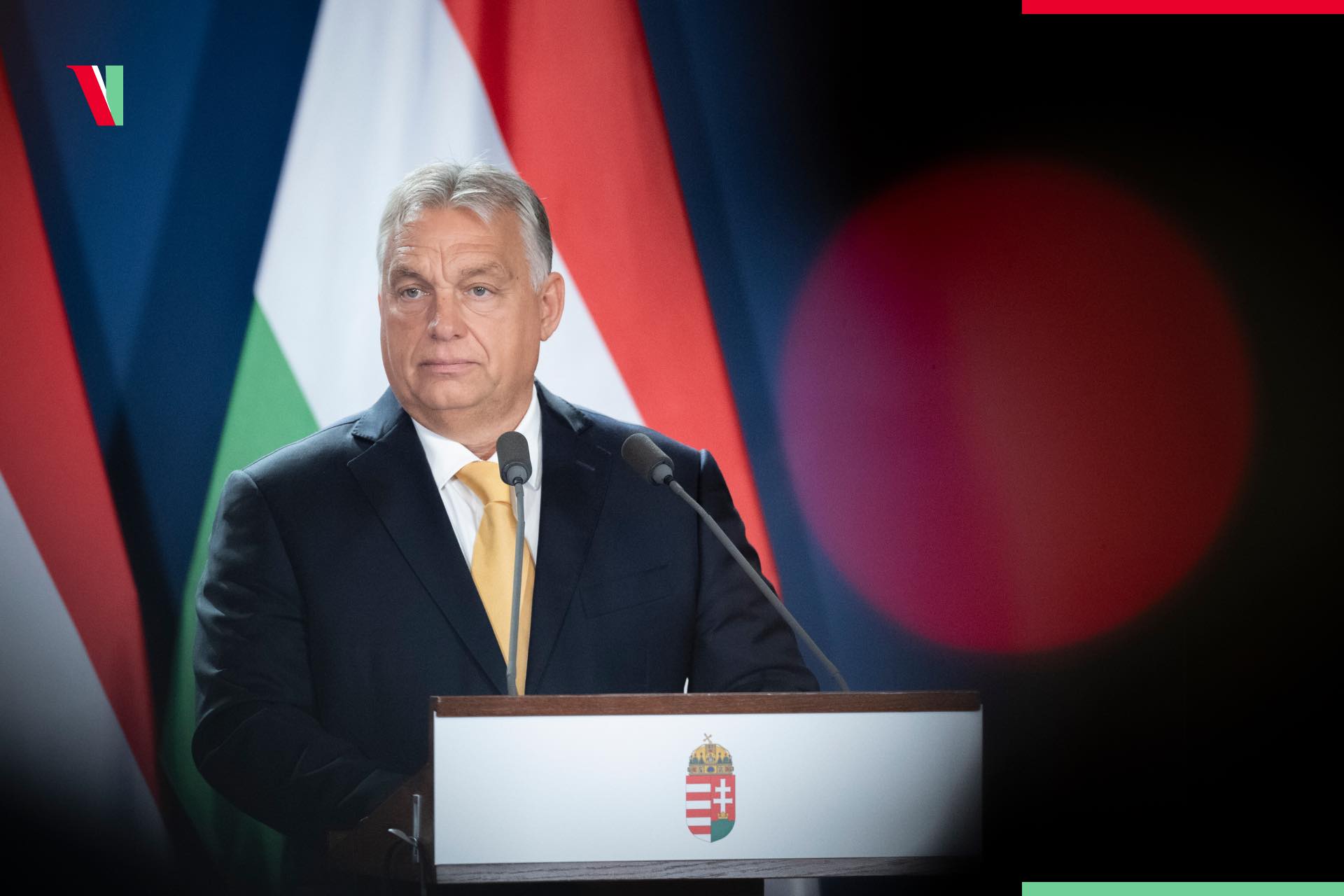
For years, Prime Minister Viktor Orbán has claimed that safety is a hallmark of Hungary, positioning it as one of the safest, if not the safest, countries in Europe. In a recent speech in Italy, Orbán again claimed that “Hungary is the safest country in Europe”. However, a closer look at available statistics paints a more nuanced picture.

Orbán has made similar statements before, including in 2022, when he referred to Hungary as “one of the safest countries in Europe” and Budapest as “one of the safest capitals”. Yet, he has never provided specific data to back these claims. When approached by Lakmusz, his press chief, Havasi Bertalan, did not respond to requests for clarification.
Hungary’s safety: A look at the numbers
To evaluate Orbán’s claim, Lakmusz turned to Eurostat data, which tracks 21 types of crimes across Europe. These include serious offences such as homicide, robbery, sexual violence, and corruption. The most recent data from 2022 show that Hungary performs well in only one category: robbery. The country recorded the lowest rate of robberies in Europe, with just 5.5 incidents per 100,000 inhabitants.
However, Hungary’s performance in other crime categories is far less impressive. In terms of intentional homicides, Hungary is in the middle of the pack with 0.88 homicides per 100,000 people. Regarding attempted homicides, Hungary ranks eighth, behind countries like Poland and Ireland.
When it comes to crimes such as human trafficking and sexual exploitation, Hungary again does not rank at the top. For instance, in 2022, Hungary reported 4.77 sexual exploitation cases per 100,000 people, placing it 10th in Europe.
Sexual violence: A complex picture
The situation with sexual crimes is complicated by differences in definitions and reporting between Hungary and other European countries. While Eurostat distinguishes between sexual assault, rape, and sexual violence, Hungary’s penal code refers only to “sexual violence”. As a result, it is difficult to make a direct comparison between Hungary and its European counterparts.
Nevertheless, Hungary’s reported rate of sexual violence (6.06 per 100,000) in 2022 is far from the lowest in Europe. This discrepancy highlights the challenges of comparing crime rates across countries with differing legal systems and reporting practices.
Perception vs. reality
The subjective sense of safety among Hungarians also tells a different story. In a survey by Hungary’s Central Statistical Office (KSH), residents were asked how safe they felt walking alone in their neighbourhoods after dark. While many respondents reported feeling safe, Hungary’s ranking in broader European studies has slipped in recent years.
For example, Hungary has dropped four places on an EU-wide list measuring public perceptions of crime, vandalism, and violence, falling from 5th place in 2020 to 9th in 2023. The percentage of people reporting security concerns rose from 5.3% to 6.1% during the same period.
The global picture
Adding further complexity, Hungary ranked 14th on the 2024 Global Peace Index (GPI), which measures safety and security on a global scale. While this seems positive, it should be noted that several European countries outperform Hungary. On the European list, Hungary ranks only 10th, not the highest as Orbán’s statements might suggest.
Conclusion
Although Hungary has made progress in reducing certain types of crime, particularly robberies, it is far from being the safest country in Europe as Viktor Orbán frequently claims. Whether intentional or not, these statements overlook key data points that paint a more balanced, if less glowing, picture of the country’s safety.
Read also:
Historian: The Hungarian people won’t learn Chinese, just like they didn’t learn Russian – Hungary belongs to Europe
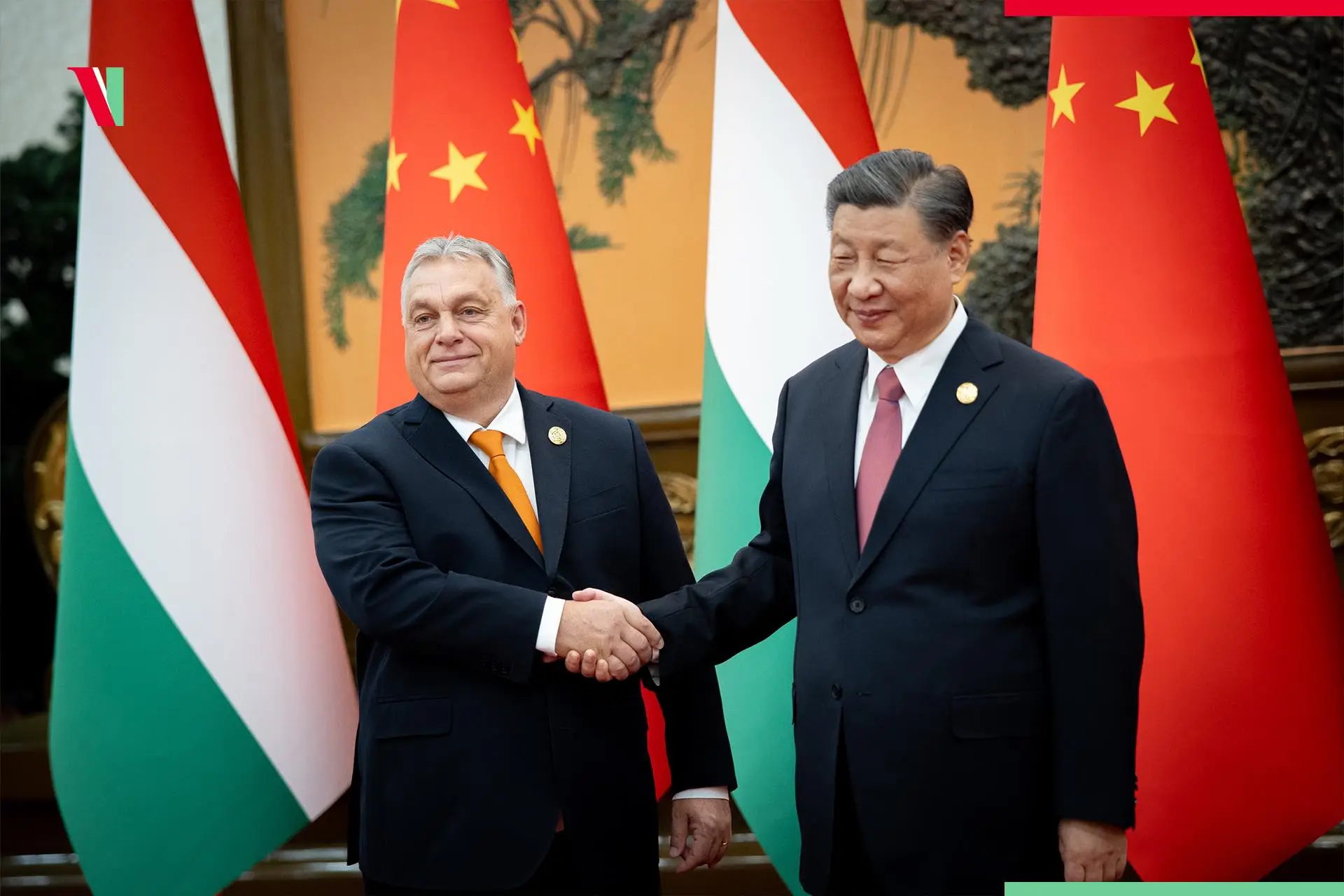
Even if Hungary were to leave the European Union or NATO in the coming years, the Hungarian people’s European identity would remain intact because its roots go far deeper than any political decision, historian Ignác Romsics stated on Magyar Hang’s program Kompország.
Romsics explained in Kompország that while a political decision could be made to withdraw from Western organisations, such a move would undoubtedly trigger alarm bells in people’s minds. The decision to join NATO and the European Union was legitimised through a referendum. According to Romsics, if Hungary were to consider turning its back on these institutions, the public would have to be consulted again.
“I am convinced that in such a scenario, the majority of Hungarians would choose Western and Central Europe over China and Russia, as that is where we have always belonged in spirit,”
he added.
He further noted that Hungary has always been a part of Europe, even during the 150 years of Ottoman rule and throughout the Kádár era. Despite compulsory Russian language education, people disliked it; they would have preferred to learn English or German. Hungarian youth did not gravitate toward Soviet films, but rather American ones. They wore jeans, drank Coca-Cola, and their behaviour reflected a Western orientation, not a Russian one.
Romsics also expressed doubt that the Hungarian people would embrace learning Chinese, despite the government’s growing ties with Beijing. While economic cooperation with China is possible, it poses challenges. Currently, over 70% of Hungary’s export-import activity is with the West. In contrast, only 1.3% of Hungary’s exports go to China, and 7% of imports come from there. In fact, Hungary’s entire trade with Asia accounts for less than 20% of its total foreign trade, he pointed out.
Read also:
Crime numbers in Hungary have more than halved since 2010

Bucking trends in Europe, the number of crimes committed in Hungary has more than halved since 2010, Bence Rétvári, the parliamentary state secretary of the interior ministry said on Wednesday.
Addressing a press conference held on the occasion of the establishment of the National Crime Prevention Council ten years ago, Rétvári noted that when the government came into power in 2010, 447,000 crimes were registered in Hungary against 178,000 today.
By contrast, in most parts of Europe crimes are going up due to illegal migration, he insisted.
The government has increased spending on law enforcement to 1,309 billion forints from 449 billion while tightening criminal policy with, for example, the three strikes law. Also, the work of the law enforcement agencies has become more effective, he added.
The state secretary said the establishment of the National Crime Prevention Council ten years ago was “an important achievement”, and its remit is to reduce the number of victims as much as possible as well as rates of recidivism.
Read also:

